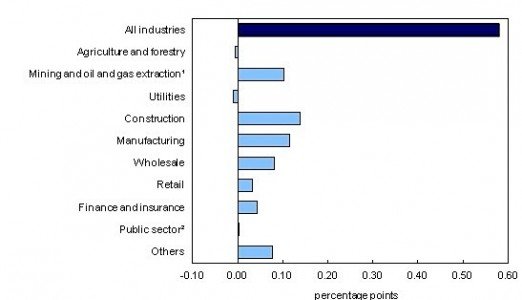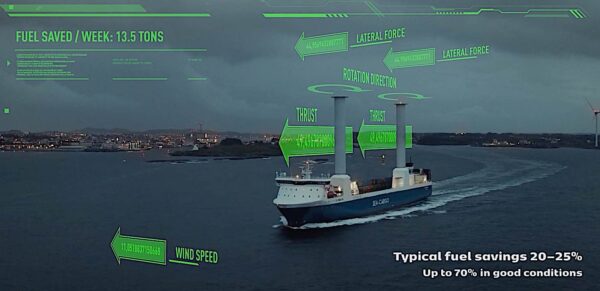After a worrisome drop of half a percentage point in June, Canada’s real gross domestic product grew 0.6 per cent in July, Statistics Canada reports. Several sectors of the economy, including construction and manufacturing, showed strong growth, following the disappointing widespread drops in June. It was the fastest month-over-month expansion in the economy in two years.
Manufacturing, which had declined by 1 per cent in June, turned in a 1.1 per cent increase in July. In the durable goods category, production was up 1.4 per cent, with gains in most major manufacturing sub-sectors, Statistics Canada says. Notable increases were seen in miscellaneous manufacturing, as well as in primary metal manufacturing and fabricated metal products. Non-durable goods increased by 0.8 per cent, led by textiles, clothing and leather products, as well as printing and related support activities.

The construction industry likewise experienced a swing, from the June decline of 2.1 per cent to a July rise of 1.9 per cent. The biggest increase was in non-residential construction, which jumped by 9.2 per cent, though residential construction also grew, as did repair and engineering construction. Part of July’s construction gains can be accounted for by the resolution of the labour dispute in Quebec.
The mining, quarrying and oil and gas extraction industries expanded 1.4 per cent in July. Excluding oil and gas extraction, mining and quarrying was up 3.5 per cent, thanks to significant increases in potash and coal mining. Support activities for mining and oil and gas extraction increased 4.7 per cent, as both drilling and rigging services rose.
Service industries increased 0.3 per cent , as most major industrial groupings registered growth. Notable gains were recorded in wholesale and retail trade, the finance and insurance sector, and the arts and entertainment sector.
Wholesale and retail trade increased 1.6 per cent after declining 2.6 per cent in June. The main contributors to the increase was the wholesaling of machinery, equipment and supplies and of building materials and supplies. Retail trade, which had decreased 1.4 per cent in June, was up 0.6 per cent in July. Increases were broad based, notably at general merchandise stores (department stores), food and beverage stores, as well as clothing and clothing accessories stores. In contrast, activity at motor vehicles and parts dealers and, to a lesser extent, electronics and appliances stores was down.
Utilities were one of the few sectors to show a decline in July, down 0.4 per cent, as the demand for both electricity and natural gas decreased.
































